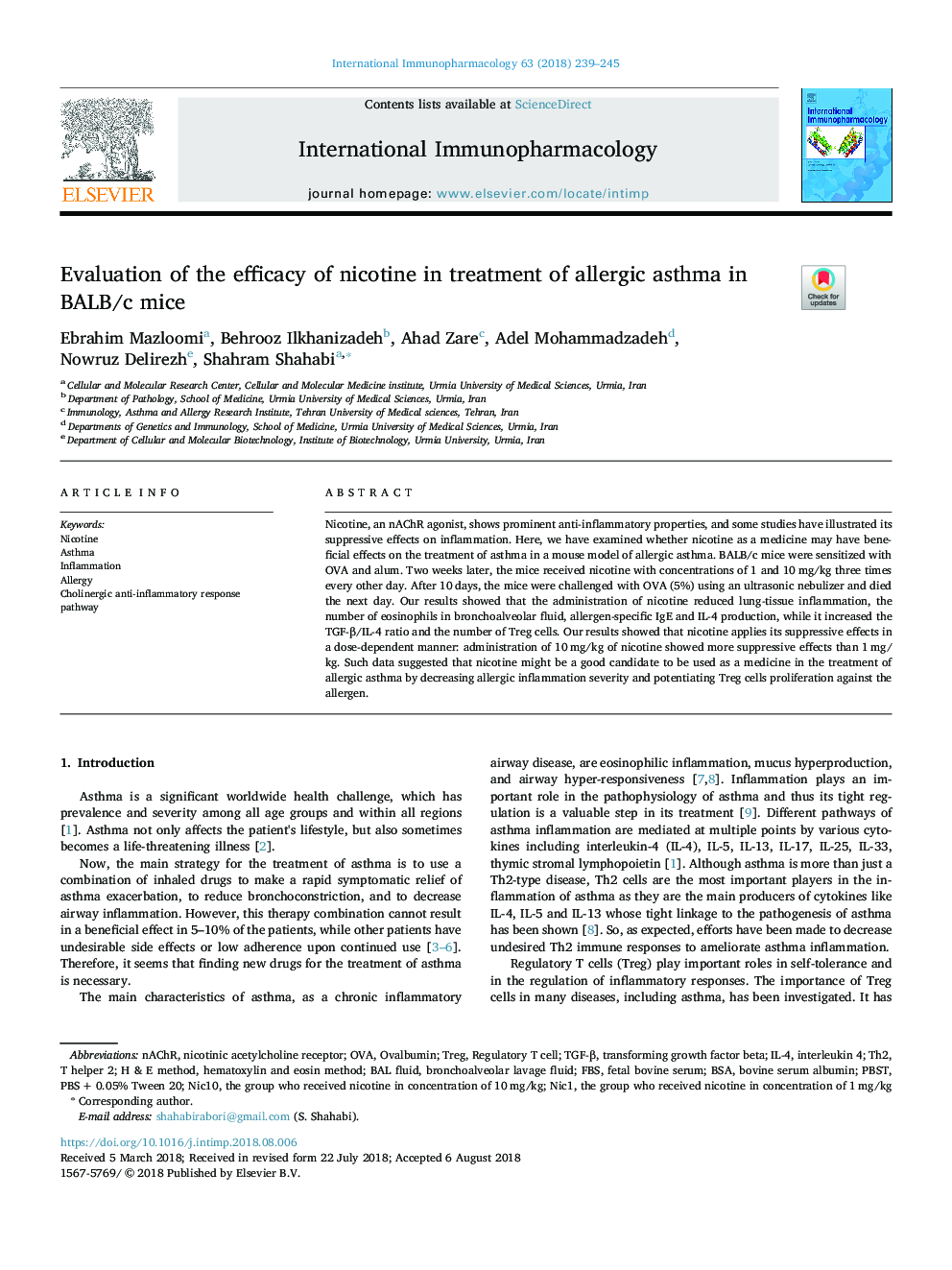| Article ID | Journal | Published Year | Pages | File Type |
|---|---|---|---|---|
| 9954923 | International Immunopharmacology | 2018 | 7 Pages |
Abstract
Nicotine, an nAChR agonist, shows prominent anti-inflammatory properties, and some studies have illustrated its suppressive effects on inflammation. Here, we have examined whether nicotine as a medicine may have beneficial effects on the treatment of asthma in a mouse model of allergic asthma. BALB/c mice were sensitized with OVA and alum. Two weeks later, the mice received nicotine with concentrations of 1 and 10â¯mg/kg three times every other day. After 10â¯days, the mice were challenged with OVA (5%) using an ultrasonic nebulizer and died the next day. Our results showed that the administration of nicotine reduced lung-tissue inflammation, the number of eosinophils in bronchoalveolar fluid, allergen-specific IgE and IL-4 production, while it increased the TGF-β/IL-4 ratio and the number of Treg cells. Our results showed that nicotine applies its suppressive effects in a dose-dependent manner: administration of 10â¯mg/kg of nicotine showed more suppressive effects than 1â¯mg/kg. Such data suggested that nicotine might be a good candidate to be used as a medicine in the treatment of allergic asthma by decreasing allergic inflammation severity and potentiating Treg cells proliferation against the allergen.
Keywords
Related Topics
Life Sciences
Immunology and Microbiology
Immunology
Authors
Ebrahim Mazloomi, Behrooz Ilkhanizadeh, Ahad Zare, Adel Mohammadzadeh, Nowruz Delirezh, Shahram Shahabi,
